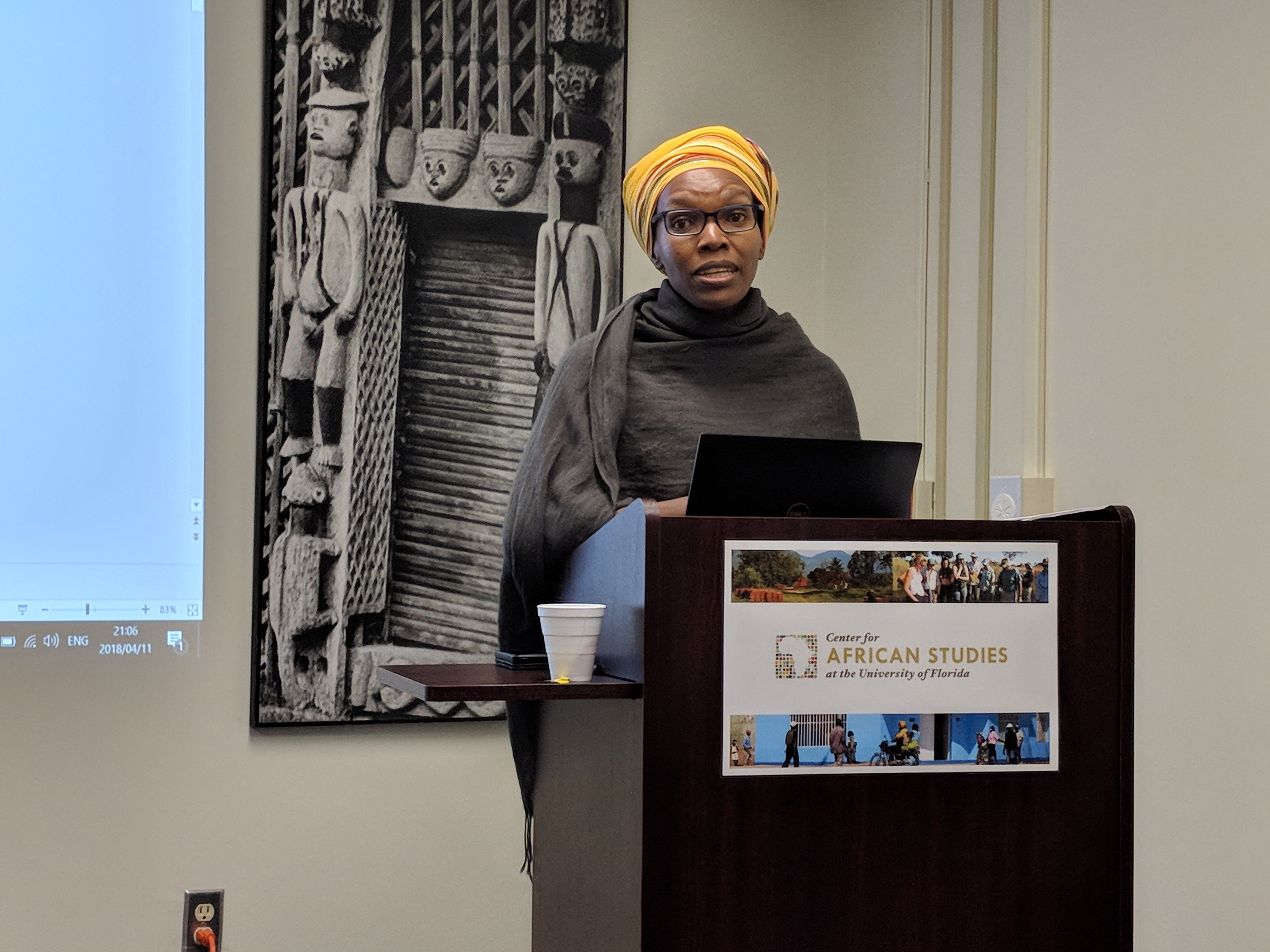On April 11, the Text and Image in Africa Working Group hosted Grace Musila (Stellenbosch University) for her lecture, “Comic calibrations of violence in Kenya, Nigeria, and South Africa.” Her lecture questioned how comedy and humor engage with violence in Africa, driven by the existing literature that ties together humor and social suffering. Dr. Musila used three case studies to examine the digital remixing of news reports for comedy throughout Africa.
The first case study centered on Nigerian First Lady Patience Jonathan’s televised breakdown over the kidnapped Chibok schoolgirls. Remixed parodies of this video were created due to the public perception that the First Lady’s response was disingenuous. Dr. Musila argues that remixing the video was used as a way of expressing anger and resilience by creating laughter and a culture of participation among constituents in Nigeria. The remixes of the First Lady’s speech broke down the formal rules of engagement in politics. They subjected state powers and citizens under that power to comedic scrutiny.

The second case study focused on the 2007 murder of a young man by police in Nairobi, Kenya. During this period, Nairobi was experiencing increased harassment and extrajudicial killings of members of youth militia by police. Following the murder, reporters interviewed a friend of the man who was killed. In the interview, the man claimed that a bonoko (a fake gun) was planted at the scene. This video later was reenacted and made into a parody, highlighting the humor in the idea of a planted fake gun. The term bonoko is now used in referenced anything fake.
The third case highlighted the 2012 police massacre of 34 miners in Marikana, South Africa. A musician created a video parody, using word play to criticize political responses to the massacre.